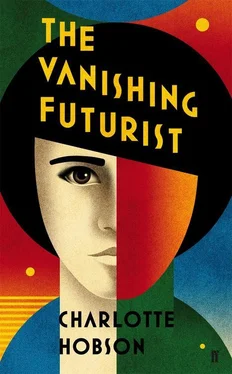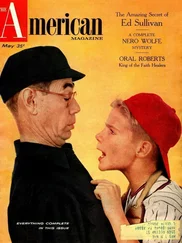‘The city of the future looks more like a village every day,’ remarked Pasha in the summer of 1918. It was true: harebells and cow parsley now flourished in the strangely empty, hot thoroughfares. Shopfronts were boarded up, most of the markets were closed down, and the onion domes were stripped of gold; day by day evidence of the city’s flamboyant pre-Revolutionary life faded from the streets. Muscovites left in their thousands, and even when Moscow was declared the capital city in March, the government ministries did not plug the gaps.
As though reclaiming their territory, the rats came out into the daylight – too many even to be kept down by the packs of stray dogs and cats, abandoned pets that had, so it was said, developed a taste for human flesh. The birds seemed to have lost their fear of humans. Once a flock of rooks attacked me as I walked home – perhaps I passed too close to their nests. I flung up my arms to shield myself and they stabbed my hands and the back of my neck with their beaks.
After our measly breakfast, we joined the crowds of people trudging to work in the middle of the road. Occasionally a lone tram, faces crammed against its windows, would divide them; silently, the crowd closed up again in its wake. Gone were the costumes of Imperial Russia – the vivid blues and reds of the dress uniforms, the merchants in fur coats and their wives in sarafans and pearls, the priests. Everyone now dressed in a jumble of drab khaki, old suits and plain dresses – partly due to the lack of clothes on sale, and partly from expedience. An epaulette, a smart collar or even a pair of spectacles was enough to single one out as ‘bourgeois’, and the city was full of characters who looked forward to an opportunity to mete out punishment to the bourgeoisie.
Occasionally I came across friends of the Kobelevs who had not gone into exile. They were classed as ‘former people’, prevented from working in any but the most menial jobs. I was overwhelmed by the stoicism with which they adapted. An old general, a cousin of Sonya’s in-laws, now worked as a lift operator at the Metropol Hotel, while his wife sold clothes she sewed out of old curtains. ‘It’s not so frightful,’ he told me. His skin hung in pouches around his face and he had the sallow glaze of malnutrition; the plump ones seemed to suffer the most. ‘I’m sorry to say that in the old days we didn’t do all we could to prevent this.’
One heard this sentiment again and again. ‘We have brought this on ourselves,’ Prince Lvov commented when he heard about the October Revolution. In August the Committee for the Mobilisation of the Bourgeoisie began to organise ‘former people’ – even the elderly – into labour brigades to sweep the streets and the yards; others, one heard, were forced out of their beds to feed the electricity stations in the middle of the night, and, in winter, to clear snow from the railways. It was a horrible sight. Occasionally they were beaten up, but even if they were not physically attacked they were taunted and abused by passers-by. I was so grateful that the Kobelevs did not have to endure it.
Our little republic at No. 7 Gagarinsky Lane kept to its own rhythm; behind our gates we were building a very different revolution from the one we saw on the streets. Yet we couldn’t help but be aware that this newborn Bolshevik world – ‘Sovdepia’, the land of Soviet deputies – was encircled and isolated, battling for its life. There was war at every compass point, and several in between – against the Germans in the Ukraine, the British in the north, the Czechs on the Volga, the Whites on the Don, and the Japanese in the Far East. In the summer Trotsky introduced martial law, and conscription sucked up many of the pupils at my school – either into the ranks or as far from them as possible. Every day we saw peasants marching through the streets to join their new regiments. A more pitiful fighting force would be hard to imagine. Many of the peasants seemed to be visiting the city for the first time and were terrified of the traffic, sparse though it was. They would break formation and huddle by the side of the road, peering anxiously to left and right; then get their timing completely wrong and scuttle out just as a lone vehicle approached them. They seemed constantly to be asking the way, usually to a church, which they called by their own names: ‘Girl, if you please, can you tell me how to find “St Michael no-hair” or “Mother of God with the oak tree”?’
We had no accurate news about what was going on outside Moscow – or, rather, we had no way of gauging its accuracy. Our information came either from the propaganda posters and slogans that papered the capital or rumour. No one paid much attention to the endless articles in Pravda about the Red Army crushing the Whites under the boot of the proletariat.
‘What, he has boots?’ as some old fellow was said to have remarked. ‘This Mr Proletariat sounds like a rich man!’
We thought the whispers in the market were more plausible, those that told of the White leader Denikin’s army of forty – a hundred – five hundred thousand, armed by the Germans. The papers reported the cruelties they inflicted on any Red soldiers they captured, which, on the whole, we believed: we already had years of experience of Cossack behaviour against unarmed demonstrators, let alone on the battlefield.
‘Our skinny Revolution, in birch-bark shoes, clutches on to its little victory by a whisker,’ Nikita put it.
And so we understood why Trotsky ordered Tsarist army officers to join up and fight for the Red Army, and also why he took their families hostage to keep them loyal. The army was starving and short of every type of equipment; so we accepted the need to send the brigades into the villages to collect food, and even to break up the factory committees. We understood – although it was also true that we preferred not to dwell on such matters.
* * *
I continued to teach English more or less without pause through all the upheavals. It was as though the overthrow of Tsarism had released a surge of energy among the working classes – a huge impulse towards learning and self-betterment of every kind. After the Bolsheviks took power many of my younger, middle-class pupils left to go abroad or to the country, but their places were taken by double the number of adult students, who seized their first opportunity to study. English seemed a more or less random choice; they could just as easily have decided on book-keeping, chemistry or statistics. They were endearing students, eager and demanding. Many of them were barely literate in their own language, let alone in a second. I remember one jowly young man, always quick to criticise my teaching from a Marxist perspective, asking, ‘And how do you pronounce this letter, with the eye at the bottom?’
‘Which letter?’ I was confused.
‘Why, this one! It’s a Russian letter too, but I don’t know—’ He stopped suddenly, blushing. He was pointing at an exclamation mark. I murmured to him that we’d discuss it after class. These new students had a good deal of pride; it did not do to embarrass them.
America was their passion: the construction of the Brooklyn Bridge, and Detective Pinkerton, and Charlie Chaplin, and the new ‘jazz’ music, the tango and the foxtrot (considered decadent, of course, by the authorities, but exciting nonetheless). ‘Americanizatsia’ and ‘Fordizm’ were the words on everybody’s lips. I taught from a copy of the Illustrated London News , by good fortune kept since 1916, which showed recent technical innovations in the USA and Europe. My pupils learnt useful terms such as ‘cable traction’, ‘gasoline engine’ and the ‘dynamo-electric machine’. Sometimes I taught for ten hours, and then went on to see my private pupils. If I worked hard enough, I might be spared another wakeful night.
Читать дальше





![Майкл Муркок - Спящая волшебница / The Sleeping Sorceress [= Участь Белого Волка, Рыцарь Хаоса, The Vanishing Tower]](/books/327544/majkl-murkok-spyachaya-volshebnica-the-sleeping-sorc-thumb.webp)






